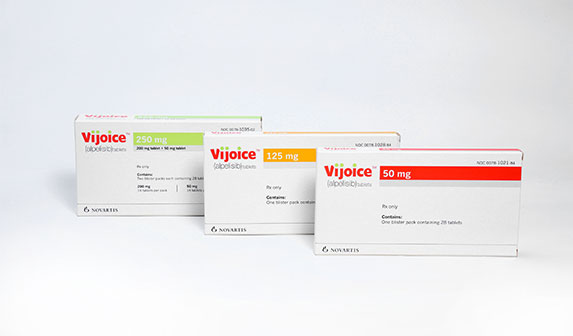
A genetic mutation is the root of “PROS,” a group of rare and debilitating disorders characterized by tissue overgrowth, mobility problems, and chronic pain. A Novartis drug that interferes with a pathway for the progression of these disorders is now approved by the FDA, making it the first therapy authorized by the agency for treating PROS patients.
The regulatory decision announced Wednesday covers patients age 2 and older who have severe cases of PROS that require systemic therapy. The drug, alpelisib, will be marketed for PROS under the name “Vijoice.”
The acronym PROS stands for PIK3CA-Related Overgrowth Spectrum. PIK3CA is a gene that provides instructions for making phosphoinositide 3-kinases, which are enzymes that play key roles in cellular growth. Mutated versions of the protein cause cells to grow and divide abnormally. Alpelisib is a kinase inhibitor designed to block the mutated enzymes.
Basel, Switzerland-based Novartis first tested alpelisib’s approach in cancer. In 2019, the FDA approved the drug for treating advanced cases of breast cancer characterized by a PIK3CA mutation. The drug’s efficacy was assessed in a pivotal study enrolling 572 patients. Alpelisib’s approval in breast cancer, which covered its use in combination the approved endocrine therapy fulvestrant, made the Novartis drug the first approved PI3K inhibitor. For the cancer indication, the pharmaceutical giant markets alpelisib under the name “Piqray.” The drug accounted for $329 million in sales last year, according to Novartis’s financial statements.
Alpelisib’s approach to interfering with abnormal cell growth characteristic of breast cancer can also apply to the abnormal cell growth in other tissues in other parts of the body. PIK3CA mutations can lead to overgrowth in fat, muscle, nerve, and skeletal tissues. PROS disorders can also manifest as blood vessel malformations and skin lesions. Treatments for PROS include surgery or interventional radiology.

Solving Healthcare’s Provider Data Problem Starts with Interoperability
Break down the silos. Take control of your provider data.
According to Novartis, the prevalence of PROS is about 14 cases per million people. The PROS classification stems from a National Institutes of Health workshop in 2013 where PROS researchers, support groups, and advocacy organizations proposed grouping the overgrowth conditions caused by PIK3CA mutations. The disorders falling under the PROS umbrella include KTS, CLOVES syndrome, FAVA, and CLAPO syndrome.
For PROS, Novartis tested alpelisib in a single-arm study that used real-world data. The FDA said PROS patients age 2 and older were given the once-daily drug under an expanded access program for compassionate use. Alpelisib’s efficacy in PROS was evaluated in 37 patients who had at least one lesion identified by medical imaging 24 weeks before receiving the first dose of the drug. The main goal was to measure at week 24 the proportion of patients with a radiological response, defined as a 20% or greater reduction in lesion volume. The study also assessed the duration of the response to treatment. Of the 37 patients, 27% had a radiological response at week 24; of those responders, 60% had a response that lasted 12 months or longer. The most common adverse reactions reported in the study were diarrhea, an inflamed and sore mouth, and high blood sugar.
The regulatory decision for Vijoice is an accelerated approval based on a thinner body of evidence than is typically required. Retaining approval status may require Novartis to provide additional clinical data to confirm the drug’s benefit.
“Today’s approval of the first treatment for PROS offers hope for a better quality of life to patients and families affected by these rare conditions,” Kristen Davis, executive director of CLOVES Syndrome Community said in a prepared statement. “PROS conditions can be debilitating and disabling and can result in disruptions to everyday activities.”
Photo by Novartis








